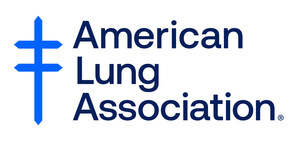American Lung Association and Olympus team up on new educational campaign to demystify lung cancer nodules, staging and improve treatment
CHICAGO, March 27, 2024 /PRNewswire/ -- About every two and a half minutes, someone in the U.S. is diagnosed with lung cancer. The diagnosis process usually starts with a suspected "nodule." The process of "suspected nodule" to treatment (or other next steps) can be confusing to a person impacted and their family. To help empower people who are newly diagnosed with lung cancer with critical knowledge about lung nodules, staging and treatment, the American Lung Association and Olympus partnered to launch a new educational campaign.
Close to 238,000 people in the U.S. will be diagnosed with lung cancer this year. Fortunately, more Americans are surviving lung cancer thanks in part to early detection, groundbreaking research and new treatments.
"Accurately staging lung cancer (knowing if the cancer has spread and where in the body) is a critical step in determining the most appropriate treatment for a person. While it may seem like a simple step in the diagnostic process, staging lung cancer can be complicated. The results of the staging process directly impact treatment options, so it is important that physicians follow guidelines and work closely with their patients to educate them about the process and what to expect. People with lung cancer and their families should feel empowered to ask questions and advocate for the highest standard of care throughout the entire cancer journey," said Harold Wimmer, President and CEO of the American Lung Association. "This is why is it imperative to educate people on how lung cancer is staged, the questions to ask and what to expect during the process. We also want to remind people that there is hope and treatment options for each stage of lung cancer. This new campaign will provide reliable, easy-to-digest information and resources to families facing lung cancer."
There are many steps from discovering a lung nodule to diagnosis, staging and treatment. Each piece of information helps doctors narrow down the most appropriate treatment for a person. It is important for people to be able to advocate for themselves to receive accurate, thorough and timely staging, which directly impacts treatment options and prognosis.
Here are five things that people should know about lung cancer staging:
- There are 3 main scenarios in which lung nodules are found: Lung nodules show up on imaging tests like X-rays and CT scans. Sometimes this is through lung cancer screening, which looks for lung cancer in patients at high risk. Other times, a patient has symptoms and physicians are looking for a cause. Sometimes a lung nodule is discovered when a patient is being treated for another condition.
- Sometimes no action is recommended: Not every lung nodule needs to be treated. In some cases, the most appropriate next step is to re-scan the lungs in several months to see if there are changes.
- Staging uses numbers and letters to describe how far the cancer has spread: If the nodule appears cancerous (malignant), physicians gather information to confirm the cancer and understand its type, size, location and spread. Based on this information, the lung cancer is diagnosed and then assigned a stage using numbers and the letters T, N, and M—size of the primary tumor (T), the number and location of regional lymph nodes (N), and the presence or absence of metastasis (M).
- In many cases, patients should wait until their care teams have finished gathering all of the information about their lung cancer before starting treatment: Physicians need to know exactly how far the cancer has spread (amongst other important information) to be able to recommend the most appropriate treatment for a patient. People should work closely with their care team to learn what to expect and the risks and benefits associated with each care decision.
- The Lung Association has new resources about staging and lung nodules: Through this campaign, resources are available to provide more information about lung nodules and staging at Lung.org/lung-nodules. In addition, the American Lung Association's Lung Helpline is staffed with a Lung Cancer Patient Navigator to help answer any questions a person or their family may have.
Through this new campaign, the Lung Association and Olympus are partnering to empower people with reliable and easy to digest information, resources and suggested questions to ask their doctor. By understanding the different stages of lung cancer and the diagnosis process, people can be more involved in the decision-making process and can better advocate for themselves and their care.
Learn more at Lung.org/lung-nodules or Lung.org/staging.
About the American Lung Association
The American Lung Association is the leading organization working to save lives by improving lung health and preventing lung disease through education, advocacy and research. The work of the American Lung Association is focused on four strategic imperatives: to defeat lung cancer; to champion clean air for all; to improve the quality of life for those with lung disease and their families; and to create a tobacco-free future. For more information about the American Lung Association, which has a 4-star rating from Charity Navigator and is a Platinum-Level GuideStar Member, call 1-800-LUNGUSA (1-800-586-4872) or visit: Lung.org. To support the work of the American Lung Association, find a local event at Lung.org/events.
American Lung Association • 55 W. Wacker Drive, Suite 1150 • Chicago, IL 60601
1331 Pennsylvania Ave. NW, Ste. 1425 North • Washington, D.C. 20004
1-800-LUNGUSA (1-800-586-4872) Lung.org
CONTACT: Jill Dale | American Lung Association
P: 312-940-7001 E: [email protected]
SOURCE American Lung Association

WANT YOUR COMPANY'S NEWS FEATURED ON PRNEWSWIRE.COM?
Newsrooms &
Influencers
Digital Media
Outlets
Journalists
Opted In





Share this article